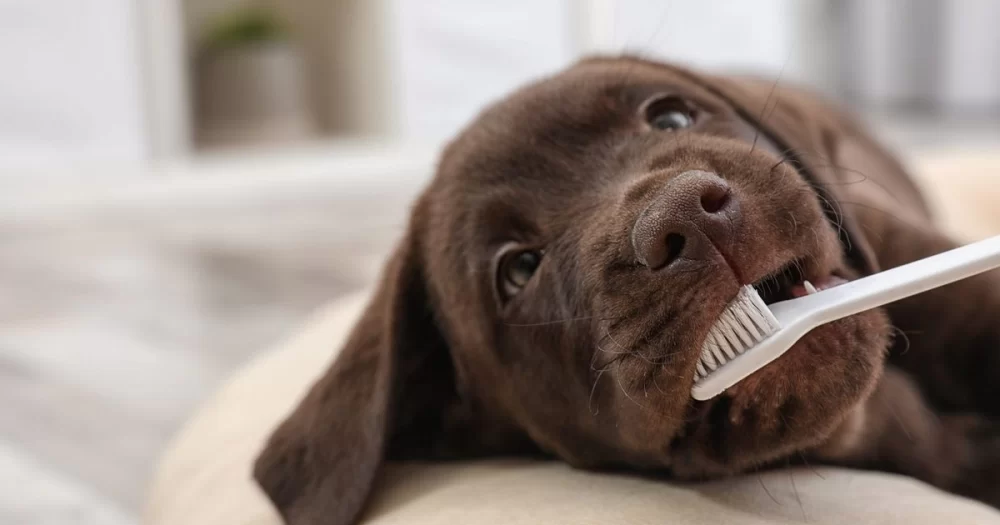The Truth About Pet Dental Health Every Owner in the U.S. Should Know
As a lifelong pet owner living in the U.S., I thought I knew everything there was to know about taking care of my furry companions. I made sure they had the best food, regular exercise, and annual check-ups. But what I overlooked for far too long was their dental health—and it cost me more than just money. It cost me peace of mind.
1. The Day I Learned My Dog Was in Pain
It started with my golden retriever, Buddy. He was seven years old, always playful and full of energy. Then I noticed a change—he stopped chewing his favorite toys and was hesitant during mealtime. I assumed it was just age, but something didn’t sit right. A trip to the vet revealed advanced periodontal disease. I was shocked. I had never considered dental check-ups essential, but the vet told me that dental disease affects nearly 80% of dogs and 70% of cats by age three in the U.S.
That moment changed everything about how I care for my pets. I realized pet dental health isn’t optional—it’s critical.
2. Why Pet Dental Health Matters More Than You Think
Dental disease in pets doesn't just lead to bad breath; it can result in painful infections, tooth loss, and even damage to the kidneys, liver, and heart. Imagine the constant ache of a tooth infection and not being able to tell anyone about it—that’s the reality for pets suffering in silence.
Many pet owners in the U.S. aren’t aware that poor dental hygiene can reduce a pet’s lifespan. Once I understood that, I made it my mission to learn everything I could and share my journey with others.
3. Signs Your Pet Might Have Dental Issues
If you’re like me and missed the early signs, here are the red flags I now look out for:
- Bad breath that smells worse than usual
- Difficulty chewing or dropping food while eating
- Excessive drooling
- Red or bleeding gums
- Yellow or brown buildup on teeth
- Pawing at the mouth or face
Even one of these signs means it’s time to schedule a dental check-up with your vet. If you're unsure, places like Hidden Brook Veterinary offer expert evaluations that can catch these issues before they become serious.
4. Daily Dental Care: What You Can Do at Home
After Buddy’s dental surgery, I committed to at-home care. I didn’t want to go through that again—neither did he. Here’s what works for us:
- Brushing: I use a pet-safe toothbrush and toothpaste. It took a few weeks of slow introduction, but now Buddy actually enjoys it!
- Dental Treats: Look for VOHC (Veterinary Oral Health Council) approved treats—they help reduce plaque and tartar buildup.
- Chew Toys: Hard rubber or dental-specific toys help clean teeth naturally as pets play.
- Water Additives: These are easy to use and help reduce bacteria in your pet’s mouth.
Consistency is key. Think of it as brushing your own teeth—you wouldn’t skip it for days, right?
5. Professional Cleanings: What to Expect
Professional dental cleanings are not the same as a quick brush. They require anesthesia to clean beneath the gumline where most bacteria hide. I was nervous at first, but modern veterinary practices in the U.S. take every precaution to ensure it’s safe.
The result? A healthier pet, a fresher mouth, and early detection of any serious issues. Now I schedule Buddy’s cleanings annually, just like my own dental appointments.
6. Cat Owners, Don’t Skip This
I also have a tabby named Luna, and let me tell you—cats are stealthy when it comes to hiding pain. One day, I noticed she was only eating on one side of her mouth. It turned out she had a cracked tooth. Dental problems in cats are just as common and just as serious. The difference is they’re often even harder to detect.
For cat owners, gentle brushing, dental diets, and vet checkups are non-negotiable. Luna now gets her teeth checked every six months, and she’s healthier and more playful because of it.
7. Costs and Why It’s Worth It
Yes, dental cleanings can be expensive—my last vet bill was over $400. But treating infections, extractions, or long-term organ damage? That can cost thousands and cause your pet unnecessary suffering. Many clinics across the U.S. now offer pet wellness plans or dental packages that can make it more affordable.
Think of it this way: Would you rather pay for a cleaning now, or an emergency later?
8. How to Find the Right Vet for Dental Care
Not all vets are created equal when it comes to dental services. I made sure to find one that specializes in pet dental health. If you’re unsure where to start, I highly recommend visiting Hidden Brook Veterinary for expert guidance and care tailored to your pet’s needs.
9. Final Thoughts From a Concerned Pet Parent
Pet dental health isn’t just a luxury—it’s a necessity. Learning that the mouth is a window to your pet’s overall health opened my eyes. Since making dental care a priority, I’ve seen real changes: better energy, improved appetite, and a visible lift in my pets’ happiness.
If you're a pet parent in the U.S., don’t wait until there’s a problem. Start today—your pet deserves it. And believe me, you’ll sleep better knowing you’re doing everything you can to keep them healthy from snout to tail.












